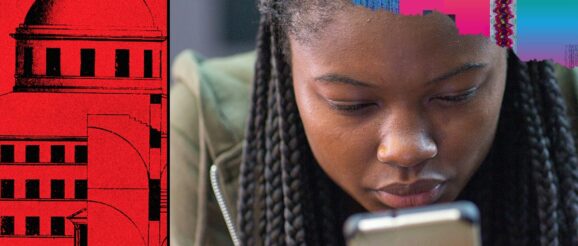Listening to Black Women: The Innovation Tech Can’t Crack | WIRED

In her new personal history of the internet, Lurking, Joanne McNeil argues that the mess Big Tech is in is largely due to its insistence on designing and making for users rather than for people. The problem is especially conspicuous with Black people. Computational narratives of existence, where metrics and nebulous data lead to monetization, don’t fit Black experiences.
Tech journalism exists, in theory, to address these problems by holding the industry accountable, through access and insight. Compounding the problem, however, is that Black people have historically been considered neither the authors nor the audience of tech journalism. For centuries, accounts of countless Black experiences with technology have been lost or poorly preserved. Black creation viewed as content and catalyst has been deeply incompatible with the conventions of tech and its discourse. That incompatibility, though nothing new, fails Black people by design, and that failure has damaged us all.
The constant surveillance of Black people today, as Simone Browne illustrates in Dark Matters, can be traced back to lantern laws of Slave Codes and the 18th-century theory of the panopticon, the all-seeing prison. Much of tech journalism has expanded the panopticon’s lens, especially in its “reporting” on interacting with Black people online. In 2010, Gizmodo offered a disturbing precedent of how Black Twitter would be covered: “Why I Stalk A Sexy Black Woman” and its follow up “So This Hipster Douche Stalks a Sexy Black Woman On Twitter.” Black social media use became a thing for tech companies and tech journalism alike to mine, and voyeuristically. Opportunistic tech creators, never missing a chance to make the same mistake multiple times, have built tools like otherside.is and vicariously.io, which scrape and curate Twitter lists and accounts of those outside users’ traditional milieu. With articles and products like these, one can “diversify” and collect “new experiences” rather than hire Black writers or cover Black experiences in context. The message becomes: You need to be aware of what Black people are doing but you don’t have to talk to them. New platforms like Clubhouse further this model, using the content of Black users while not investing in the infrastructure, to disturbing results.
Sydette Harry (@Blackamazon) is a researcher and strategist from Guyana by way of Far Rockaway, New York, desperately trying to put hats on babies and improve how we talk to and about people.
Browne’s historical grounding makes the repetitive nature of these missteps all the more stark. “Toxic Twitter,” for example, is the title of an Amnesty International report on online abuse, which Black women suffer from disproportionately. One of Toxic Twitter’s earliest appellations is a 2014 cover story in The Nation that suggested Black women’s resistance to racism in feminism can be worse than the actual racism. Racist depictions of Black women throughout history and glaringly on social media repeat this failure of power analysis and historical context. The terminology changes (usually appropriated from Black cultural makers)—cancel culture, bad discourse, etc.—but the context-free arguments remain the same. Where the racism of making Black women synonymous with “toxic” and “cancel” carries over and unnamed power imbalances equivocating admitted racists and people trying to stay alive. Last summer, a letter in Harper’s bemoaning “cancel culture” spawned multiple interviews and interventions for its millionaire signatories, who fear the end of “open debate.” Meanwhile marginalized young journalists, specifically young Black women, are barely quoted anywhere in the media, even as they are pushed out of newsrooms at an alarming rate.
When tech media is not accustomed to listening to Black women, tech users fail to realize when Black women are not real. MSNBC recently revealed that Russian operatives had been posing as Black people to spread misinformation. Black women have been chronicling this fakery for years. Even though Black women were the first to expose the alt right six years ago, their work and the alarms they’ve rung consistently remain uncredited and unheard. Platforms often take weeks to intercept targeted harassment of Black women, to the point where other users simply describing the abuse and delay of intervention are targeted.
